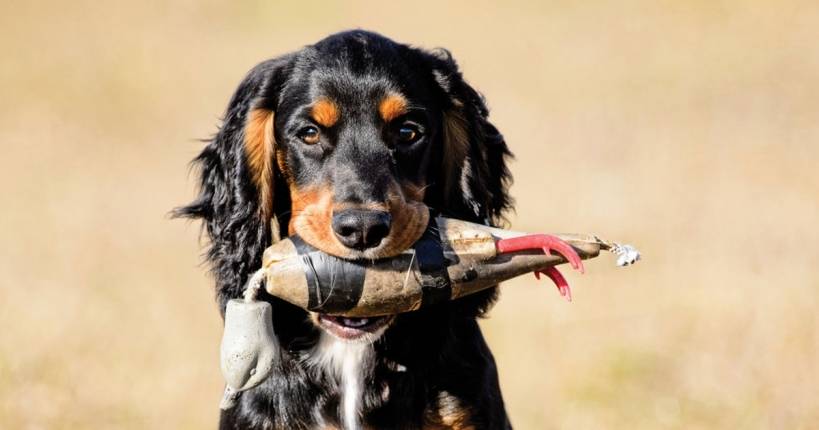If the dog takes part in various shows, and is used in the service and in sport, so it is a sporting dog. The main criterion is considered endurance of the dog, which has to be trained.
What do you need to know during training sporting dogs?
During the training you need to find a middle ground. It is important not to overload the dog, however, the lack of exercise will not give any results. We need to develop the dog's endurance in the race: gallop and trot.
For training the blood supply, the heart, and the lungs, swimming is useful, but the muscular system develops weaker than while running.
You must know that while running, the dog's oxygen energy system begins to work: as it copes with a task to cover the body's need for oxygen, the dog does not experience extreme fatigue. Oxygen enters the muscles and produces carbon dioxide instead.
Nevertheless, after a while, there comes another phase - anaerobic, there is not enough oxygen. When the glucose gets into the muscles of the dog, it is converted into lactic acid. At the same time, the dog begins to feel pain in the muscles and feels tired. Therefore, you must immediately stop the training; otherwise, it may cause complete exhaustion.
Recovery occurs within a few days. Therefore, you need to train the dog gradually; thereby increasing the first aerobic phase and you will prevent the exhaustion of the dog during the competitions.
With the gradual and intensive activities, the strengthening of the heart and the lungs of the dog begins. The oxygen system is gradually expanding; oxygen is carried to all organs much more intensively. The bone skeleton, tendons, and muscles strengthen.
You should know that the sporting success of the dog will depend on the following factors:
- - psychological compatibility of the owner and the dog;
- - excellent sports training;
- - selection data;
- - proper feeding;
Feeding organization
Sporting dogs are fed differently than hunting or search dogs. In order not to gain excess weight but get the maximum energy, which will affect the result.
There are specific factors that can affect the nutritional requirements of sports dogs - stress. The dog experiences this during training and competition. Proper nutrition can eliminate such an unpleasant factor as dehydration. Therefore, the food should provide the necessary energy and reduce the amount of content in the gut.
For dogs, there are specially balanced feeds, which can provide a small amount of their use and allocation of feces.
Sporting dogs experience heavy load and stress, so their food must contain a high amount of protein and 40% of the dry mass of the feed.
It is necessary to increase the number of vitamin B and antioxidants - selenium, vitamin E, omega-3 fatty acids, and L-Carnitine so that the dog does not gain weight and effectively assimilates fatty acids, vitamin C, which is indispensable for the maintenance of immunity and life, and probiotics that help to digest food.
It is impossible to train the dog if you did not feed it; the dog should eat a fourth of its daily diet and drink enough water. The food should be given 3 hours before the training. The rest of the food and water remains in the evening feeding.
The dog should drink water at any time, even after exercise to avoid dehydration. Following the suggested recommendations, you can raise and train a sporting dog.






